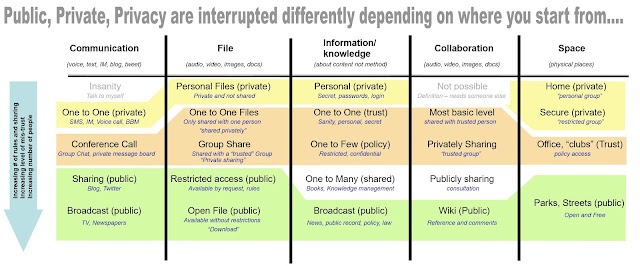Public, Private, Privacy are interrupted differently depending on whereyou start from : picture

Original post https://www.mydigitalfootprint.com/2012/03/privacy-identity-and-personal-data-are.html I hope this picture shows that our model of what is Private is not the same I hope this picture shows that our model of what is Public is not the same I am hoping therefore that we can agree that …. There is NO one model of Privacy that works in all cases and in all places There is NO one model of Private that works in all cases and in all places There is NO one model of Public that works in all cases and in all places There is NO one model of Trust that works in all cases and in all places